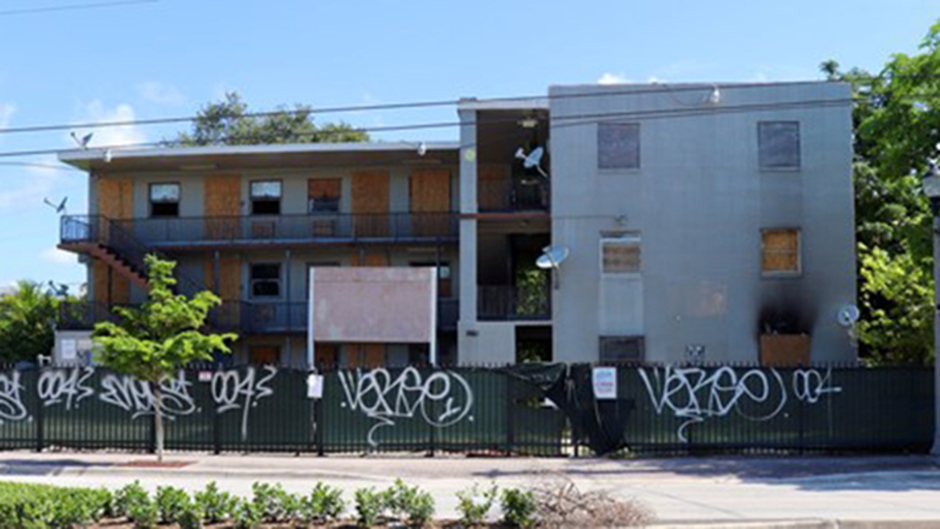Fellows from the Community Equity Lab at the Center for Ethics and Public Service worked alongside community organizations in the historically Afro-Bahamian Coconut Grove Village West community, near the University of Miami campus, to address fair housing and health disparity issues affecting residents.
Second-year law students Odette Ponce and Chris Gray researched the processes and decision-making of the City of Miami surrounding the 2011 approval of a Major Use Special Permit that approved the demolition of 46 single and multi-family homes in a six-block area of the West Grove. The City’s decision ultimately led to the displacement of hundreds of people, including many lifelong residents of the neighborhood.
“We have had an amazing opportunity to learn from community leaders in organizations like GRACE [Grove Rights and Community Equity Inc.],” said Gray. “It is inspiring to watch GRACE leaders fight for members of their community, and we are grateful they’ve included us in that process.”
Gray and Ponce both bring past experience to the work. Gray, a former U.S. Air Force Captain, and Ponce, who has a master’s degree in public health, each find their previous experience useful in approaching the project.
Over the past few months, Fellows have submitted public records requests to the City of Miami and have worked to locate and interview displaced residents to tell the story of what happened. With this story and data to support it, the Lab hopes to influence policy change in the City of Miami to address the effects of gentrification on low-income communities.
Third-year law student Dr. Timothy Loftus, in partnership with Dr. Shirin Shafazand at the Miller School of Medicine, spearheaded a new project to address health disparities in Miami-Dade. In response to community leaders’ alarm over the impact of the COVID-19 pandemic, the project aims to address underlying inequities that have caused a disproportionate impact on low-income communities.
The health disparities project’s work received a University of Miami “U-LINK” (University of Miami Laboratory for Integrative Knowledge) grant to support interdisciplinary research. That piece of the project, titled “COVID-19: Evaluating Fault Lines in the Health of Our Communities and Developing Community-Centered Solutions,” will build a foundation for an ongoing medical-legal community partnership.
“We have great hope that by partnering with the community we can use data to compel much needed change to improve healthcare outcomes and access,” Dr. Loftus said. “While much work lies ahead, the community certainly provides ample inspiration to drive the project forward. I am thankful to be a part of it.”
More on the Center for Ethics and Public Service
More on social justice and public interest at Miami Law

